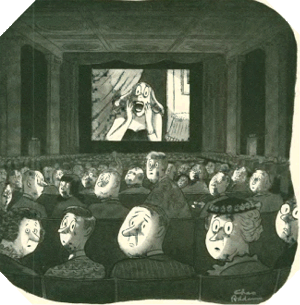In amongst the Inner Hebrides off the western coast of Scotland, Nature has placed one of her greatest marvels, namely Fingal’s Cave, its enormous entrance rising in barren grandeur from the ocean, lined with innumerable fluted columns. Within lies a kind of natural throne imposing enough to suggest the kingly seat of Neptune himself. When a storm is raging, the scene at Fingal's Cave is said to be sublime.
The most striking aspect of the music is its otherworldly tone-painting quality. One can hear the haunting breaking of waves, almost see the basalt columns and strange colors, and overall, sense the overwhelming vastness of the cave:





